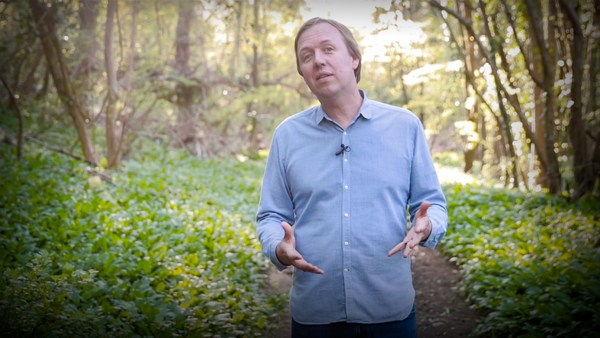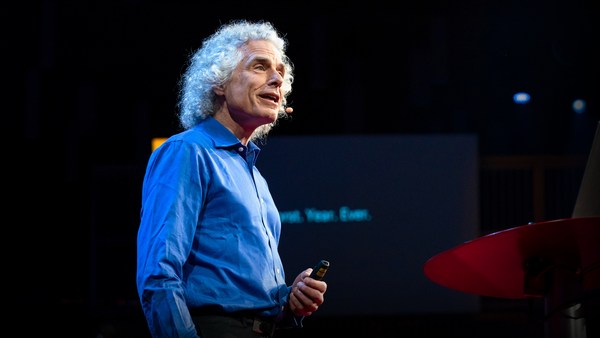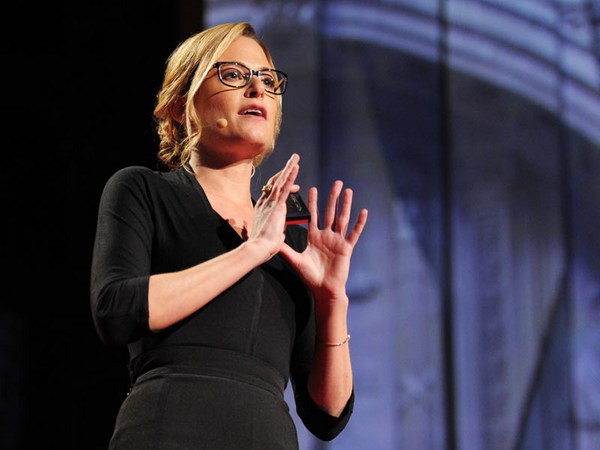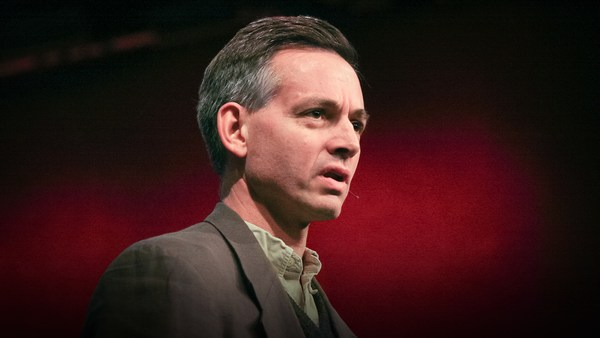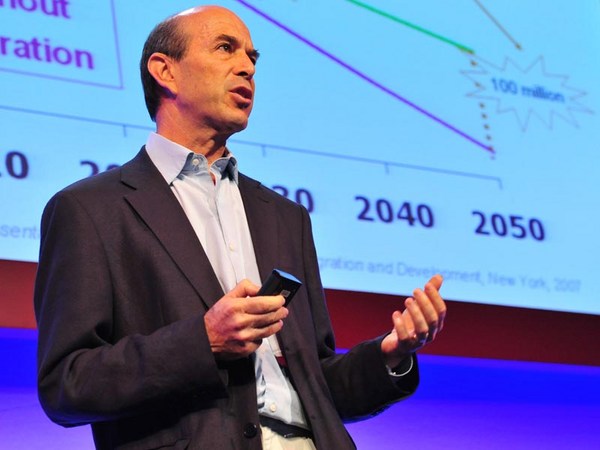I want to try and persuade you that there are reasons why we should be optimistic in general. And that’s a very difficult thing to do today because we are confronting tremendous problems in this world. Things like global climate change, which seem almost impossible to solve, or social inequality, which seems endemic and difficult to eliminate. The scale of these problems though is even more reason why we should be optimistic. Because what we know is that in the past, every great and difficult thing that has been accomplished, every breakthrough, has in fact required a very strong sense of optimism that it was possible. Think of the first airplanes. It’s hard enough to create something good and great deliberately and with intention. And it’s no guarantee, just because we believe something will happen that it will happen, but we do know that unless we believe that something can happen, it’s not going to happen inadvertently by itself. And so it becomes really important that we imagine a world that we want, that we imagine solutions we want and believe that we can make them happen. And that belief in making something impossible happen is what has shaped our future so far.
So our own history has been basically shaped by optimists, and if we want to shape the future, we need to be optimistic. That world that we’re shaping is not a world that’s perfect. It’s not perfection, there’s no lack of problems, there’s no absence of bad things. It is totally not utopia. It’s what I would call pro-topia: a world in which things are a little bit better. And that sense of optimism is a perspective where we expect the world to yield a little bit more good than bad, to have a few more reasons to hope than to fear. And optimism definitely is not just a sunny temperament, a kind of a blindness to the realities of the world's problems or some kind of Pollyanna self-delusion. Instead, optimism is based on the fact of historical progress, that if we transcend anecdote and look at data in a scientific, rational way, that we can see that the evidence says that on average, on a global scale over time, over the last 500 years, there has been incremental improvement over time.
If it’s real then why don’t we see more of it? Why are so many people pessimistic? And I think there are three reasons why. One is that most of what progress is about is about what does not happen. It’s about all the things that could have happened that didn’t happen today. It’s about the two-year-old child who did not die of smallpox. It’s about the family farmers whose year of surplus food was not stolen by raiders. They don't make the headlines.
And the second reason is that bad things happen faster than good things. Good things take time. When we are compressing our news cycle to the last five minutes and the next five minutes, all the things that have changed in the last five minutes are kind of bad stuff because good stuff takes longer. If we were to make newspapers and websites to be updated every 100 years, we’d have a very different set of headlines.
The third reason is that because societies that are capable of creating just a few percent more good than they destroy every year, if you have a society that’s capable of making just a few percent more than it destroys, then over time, that few percent is compounded. And that is what civilization is. So that one percent, few percent, is almost invisible in the noise of the 49-percent crap and destruction around it. So we don’t see it unless we turn around and look back into the past.
So it’s possible that after 500 years of progress, it could stop tomorrow. But it’s unlikely and very, very probable that that long-term trend will continue, at least for the rest of your lives. So this optimism makes us realists in aligning ourselves with this long history of historical progress. And that’s the first reason we should be optimistic.
And the second reason is that civilization is a mechanism to make these improvements that relies on the fact that we’re optimistically trusting others. We have total strangers that we can collaborate, and that collaboration allows us to make things beyond ourselves that are bigger than just what we can do. That requires trust, and trust is a type of optimism. But in addition to kind of cooperating with the eight billion total strangers on this planet accomplishing great things, we can also trust future generations. The billions of people yet unborn into the future. Right now, today, we are benefiting from the work of previous generations who undergone to create infrastructure -- roads canals, skyscrapers, telephone networks -- that we are now enjoying. In fact, we may be enjoying more benefits than they have back in the past when they began. So they have been acting as good ancestors for us, and sometimes even sacrificing what could have been immediate yields and benefits and postponing them until future generations. We also want to be good ancestors, and being good ancestors trying to move benefits to the future generations is an act of optimism. One, because we believe that there will be future generations, and two, because we are willing to sacrifice immediate gains in order to postpone -- have more gains into the future -- that investment. Being a good ancestor enables us to actually accomplish things not just beyond what we can do individually in the present, but what we can do over time.
So when we trust the future, one of the things that we are understanding is that future generations not only have better living standards because of progress, but they also have more capability to solve problems because there’s more knowledge and because they have better tools. And so we can trust that. We can trust the fact that in the future, future generations will be able to solve problems that we cannot solve ourselves. So that means that we should be optimistic not because we believe that our problems are smaller than we thought. We should be optimistic because we believe that our capacity to solve problems is greater than we thought. So that’s a second reason to be optimistic.
The third one has to do with problems which are really disguised as opportunities. OK, so optimists don’t shun problems. Optimism is about embracing problems, because it’s problems that make solutions and solutions that make problems. So I believe that most of the problems we have today are generated by the solutions of the past. And the great one is this climate change. The solution in the past was artificial power -- “Where do we get it?” “OK, here it is.” But now it makes the problem now. That means that today, most of the solutions that we have will be generating the problems of the future. And there will be more problems because new solutions create many more problems. In the same way, when science answers a question, that answer will generate two or three new questions -- things that we didn’t even know we didn’t know. And so, in a peculiar way, science is expanding our ignorance faster than our knowledge.
So we have an unlimited pool of questions and problems. But problems don’t impede progress. Problems are the conduit of progress. No problems, no progress. That is why I reject utopia, because there are no problems there. So even bad things that happen are basically possibilities that yield new solutions and better opportunities. So in that way, problems are unlimited. There is no limit for improvement. So we can improve ourselves in all directions.
So we have a choice about optimism. It’s not a temperament. No matter what your temperament is you can still choose to be optimistic. And gigantic problems require gigantic optimism. We have a moral obligation to be optimistic, because when we’re optimistic, we can shape the future, we can become better ancestors, we can expand our reach -- create things bigger than ourselves. And we can be a realist in aligning ourselves with this long arc of history and embracing problems as opportunities. With optimism, we can use it as a power to kind of create the future that we want. This is the way.
Thank you.
(Applause)
